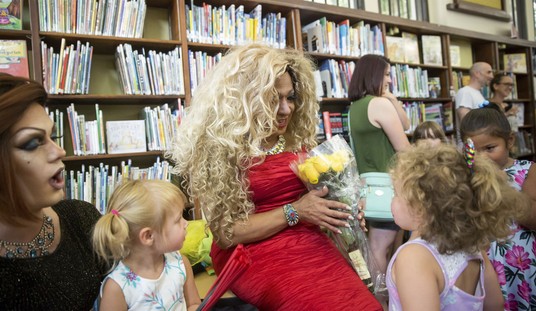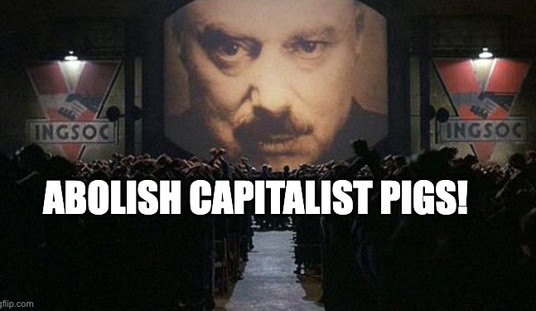Call it the picture that set a million teeth on edge. Andrew Malcom showed a shot of Michelle Obama serving food in a homeless shelter while one of the recipients of her charitable work took a picture with his cellphone. This created a firestorm of debate over how a homeless person could wind up with a cellphone:

Both of these news photos were widely distributed across the country and even around the world.
It doesn’t detract from the first lady’s generous gesture or the real needs she seeks to highlight to ask two bothersome journalistic questions about these news photos:
If this unidentified meal recipient is too poor to buy his own food, how does he afford a cellphone?
And if he is homeless, where do they send the cellphone bills?
Kathy Shaidle and Stacy McCain both reported on government programs for those on food stamps, welfare, or Medicaid (via Michelle):
We can certainly debate whether we should be funding free cellphones as a form of welfare, but it’s not clear that the person in the picture used that program to get his phone in the first place. He may have bought it on a pay-as-you-go basis, which some systems use. I suppose it’s possible that a family member or friend bought it for him, too, or that he may have been another volunteer in the food kitchen that day who just wanted to get a shot of Michelle Obama doing volunteer work.
It’s important to remember that there are different kinds of homelessness, too. Some people are deeply homeless, with no prospects and no hope for getting off the street. Some are transitional, though, perhaps living out of cars or bunking in shelters while attempting to gain employment. Without an address, they’d need to have ways to contact potential employers, and more importantly, for potential employers to contact them. A cell phone gives them that opportunity, and helps reduce the need for the shelters.
And let’s face it — it’s better to have them spend the money on a cell phone than on drugs or alcohol. It’s not just cheaper, it’s a lot more productive.
In the end, perhaps it’s best to pray that the phone gets used as a lifeline out of that shelter than to worry about the cell phone itself.








Join the conversation as a VIP Member